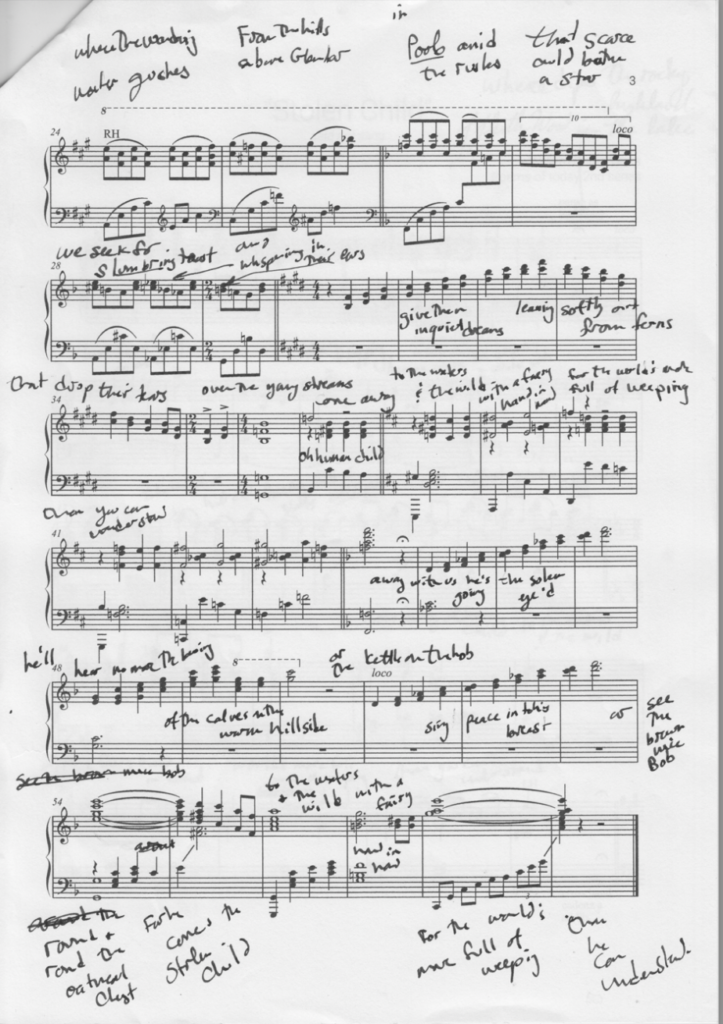In celebration of Valentine’s Day, I decided that I would share a touching moment that I experienced while researching English melodramas ca. 1900 in the library of the Royal Academy of Music, London.
RAM, it turns out, was quite a melodramatic hotbed around 1900. A.C. MacKenzie, who was director of the institution from 1888-1924, wrote several melodramas that were highly praised at the time. A number of RAM teachers were also involved in the composition and performance of melodramas, including York Bowen, Harry Farjeon (grandson of the famous American actor Joseph Jefferson), Stanley Hawley and Frederick Corder. So, it seemed like an afternoon in the archive there would be time well spent…and it was! York Bowen’s ‘Recitation’ [a.k.a. Son for a Child’s Headache] is a lovely piece that only exists in manuscript in the library there, which I recorded with great pleasure together with Artem Belogurov to be included on our melodrama CD. But what was very unexpected and very touching was the file containing music by Margaret Amphlett (1874-1958), who had studied piano at RAM.
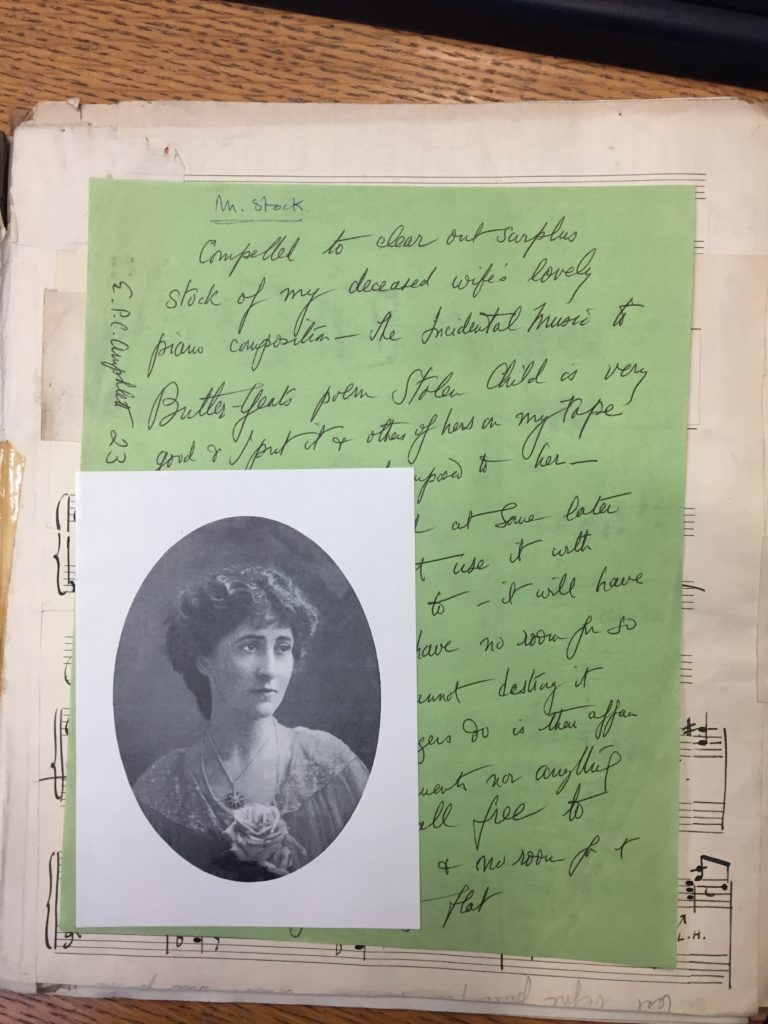
When I opened the folder I found a neat pile of papers: a photocopy of a photograph of an elegant woman (is this Amphlett herself?), a handwritten letter and the score of a melodrama for voice and piano entitled The Stolen Child. The letter was from her second husband, Edward Paul Charlton Amphlett (1885-1969).
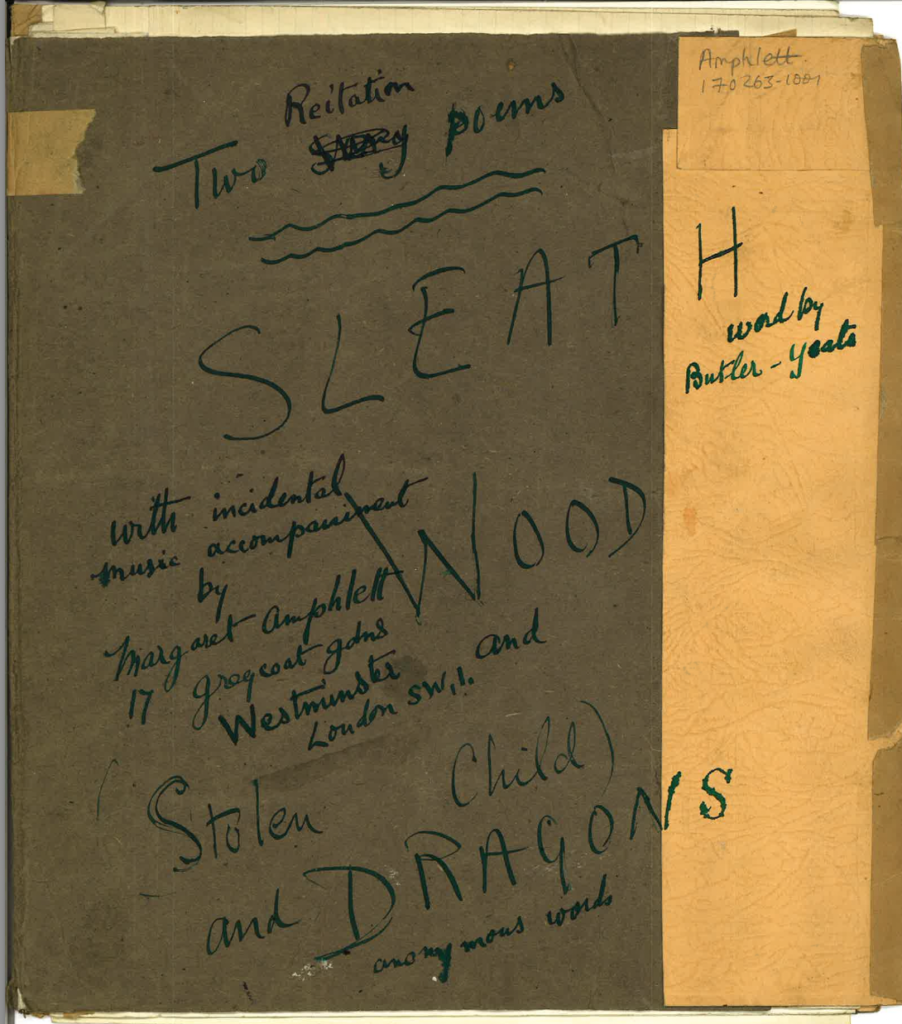
If internet sources are to be trusted, Amphlett was estranged from her first husband (a certain Frederick James Murphey) on grounds of domestic violence. She seems, however, to have found a more caring partner in her second husband, whom she married in 1917. In his letter he writes:
Compelled to clear out surplus stock of my deceased wife’s lovely piano composition — the Incidental Music to Butler-Yeat’s poem Stolen Child is very good & I put it and others of hers on my tape recorder, also song I composed to her—All free when played at some later date if you cannot use it with a friend to give to — It will have to be destroyed as I have no room for so many copies but cannot destroy it myself—what strangers do is their affair no copyright nor payments nor anything required all free to anybody and no room for it in my tiny flat
Photos inside can’t keep so many do not return
E.P.C. Amphlett
23 Royal Pavilion Flats
Folkestone
Kent
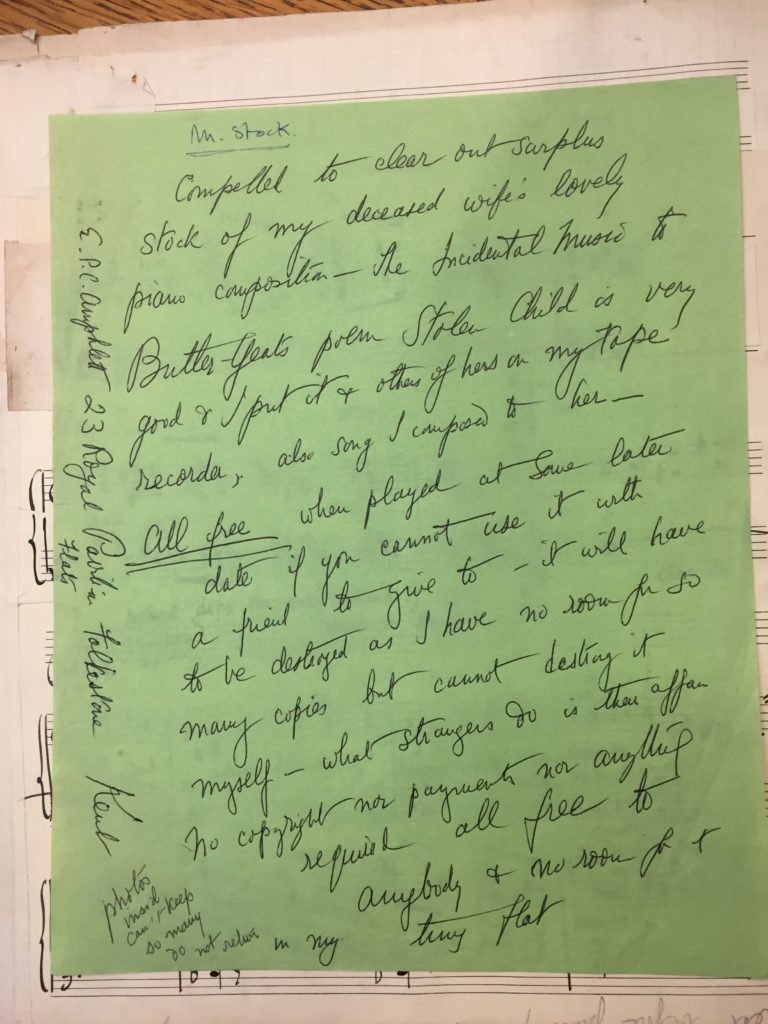
I found this very touching, hinting at a kind of quiet despair at a phase of life that had passed, of shared music-making grown irrevocably silent. And I decide then and there I would record the melodrama, to give a voice back to these two forgotten people.
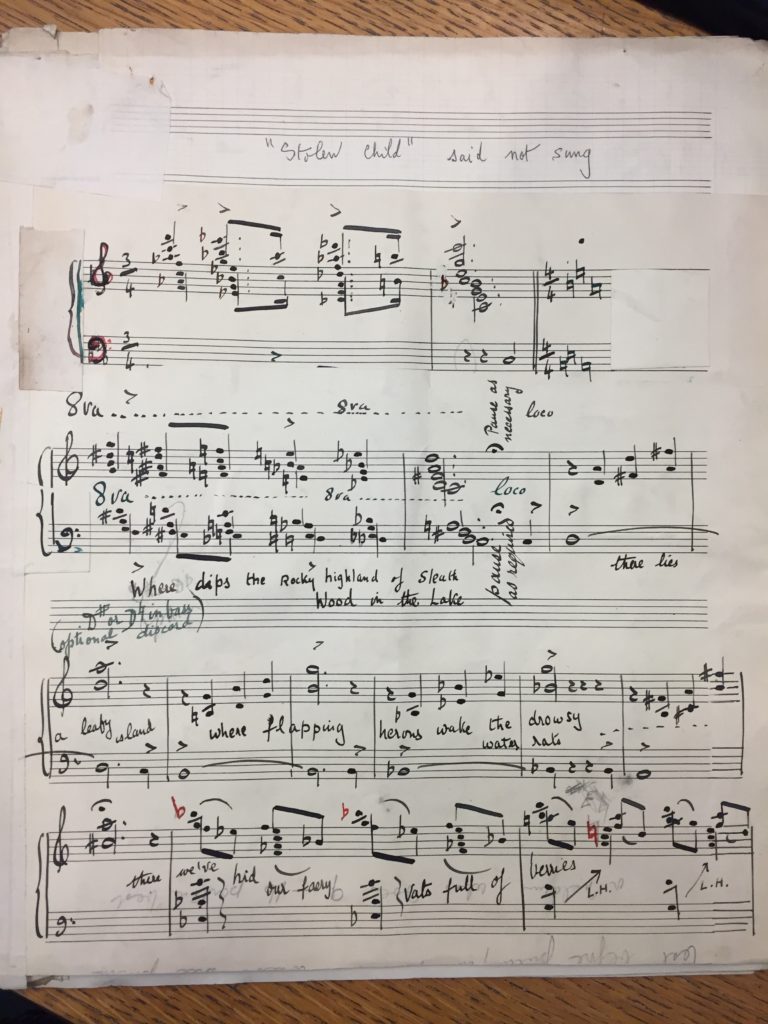
I did not find Amphlett’s tape recording in the library, so I am not quite sure if he indeed had recorded The Stolen Child for posterity…it would have been useful if he had, for me at any rate, because the manuscript is very imprecise as to the placement of the spoken text in relationship to the piano part.
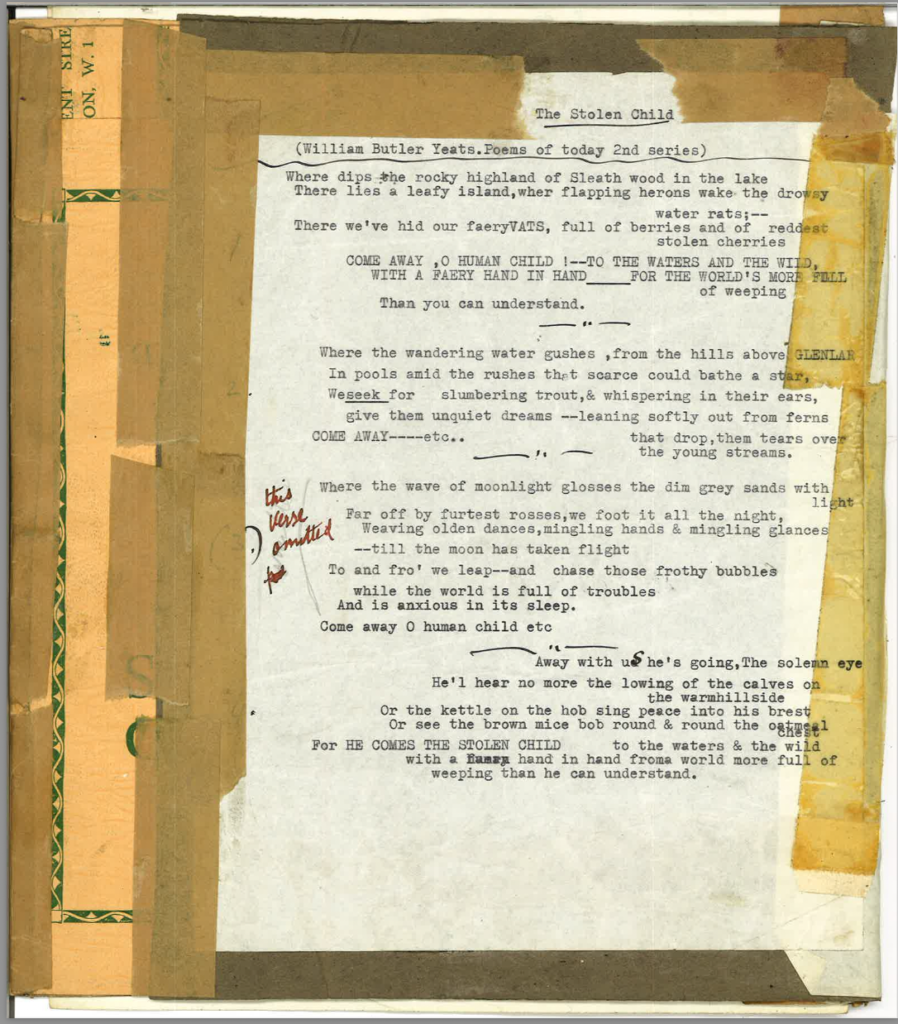
I tried out many different versions, moving the text around in order to accommodate the meter (and the accentuation of the poetry) to the music. This is actually quite a complicated thing in preparing melodramas for performance. Sometimes the composer has done the work for you (in Pierrot Lunaire the composer perhaps went overboard in this respect!), notating the rhythms precisely, but more often the reciter has to make these very important decisions her or himself. Daniel Ivo de Oliveira, who engraved the score for me, had a lot of patience with me as we worked on the various versions!
You can listen to the recording here:
